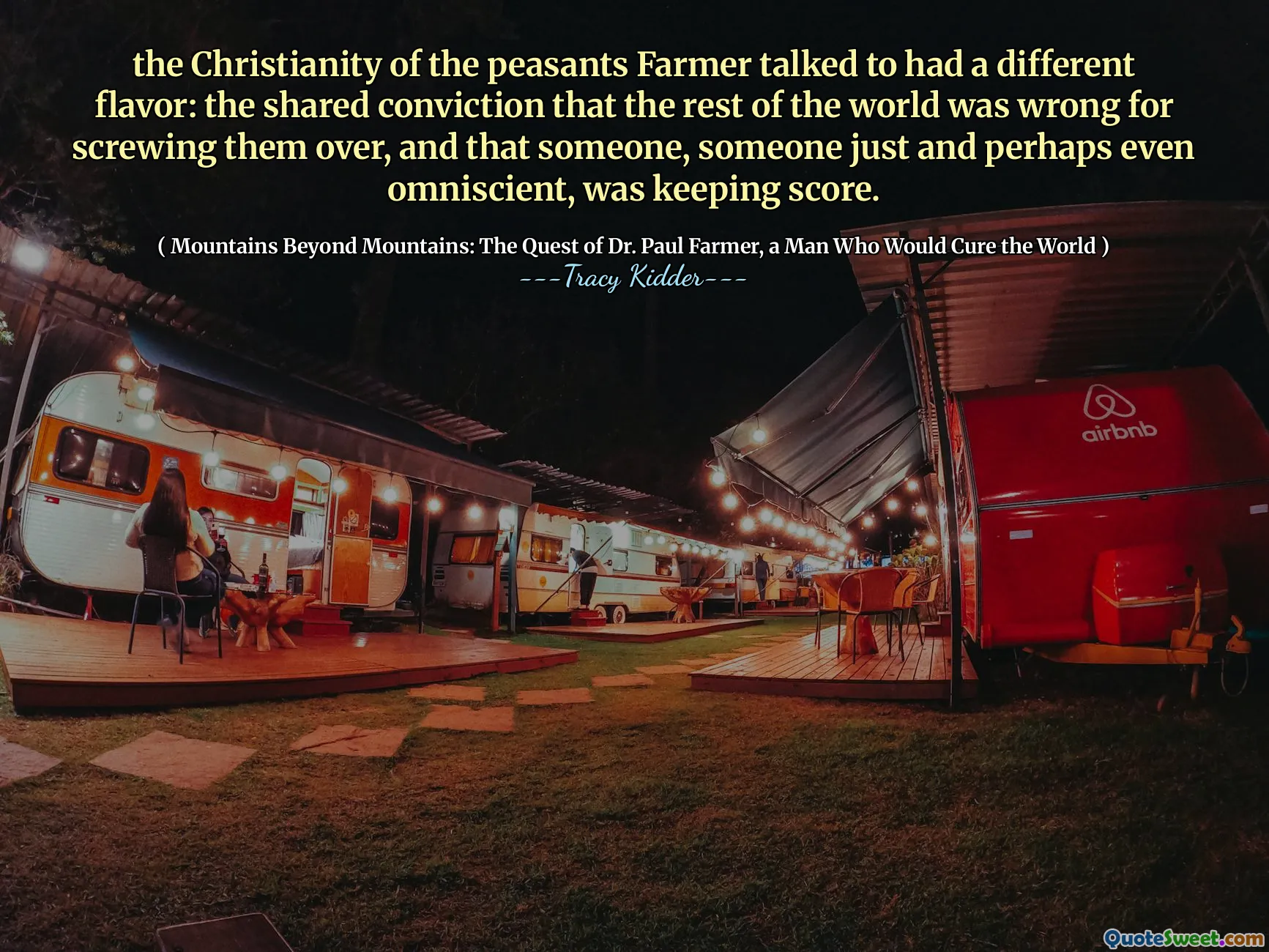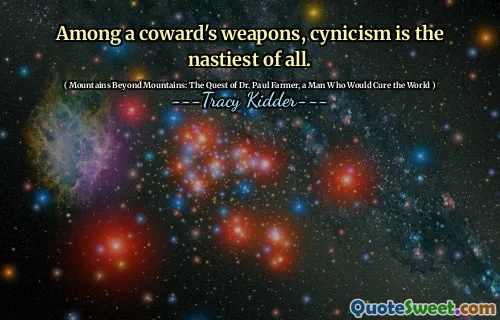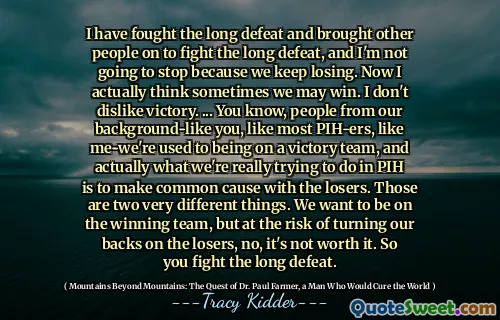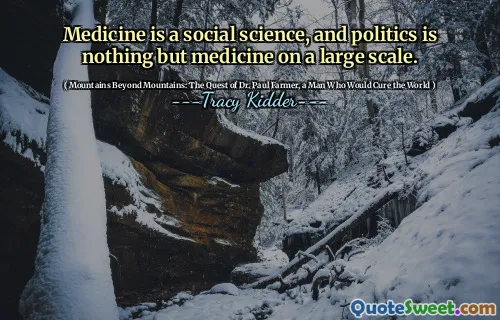
the Christianity of the peasants Farmer talked to had a different flavor: the shared conviction that the rest of the world was wrong for screwing them over, and that someone, someone just and perhaps even omniscient, was keeping score.
The Christianity of the peasants that Farmer spoke with differed significantly from mainstream interpretations. It was marked by a collective belief that society was unjustly treating them, leading to a conviction that someone, perhaps a divine figure, was aware of their struggles and injustices. This belief provided them with a sense of hope and solidarity in the face of adversity.
This perspective of faith among the peasants reflects a deeper understanding of their situation and the injustices they faced. It is a viewpoint that sees divinity as an advocate for their suffering, suggesting that their struggles are not unnoticed and that justice will prevail in some form. The shared conviction among the community adds a layer of resilience and purpose to their lives.











